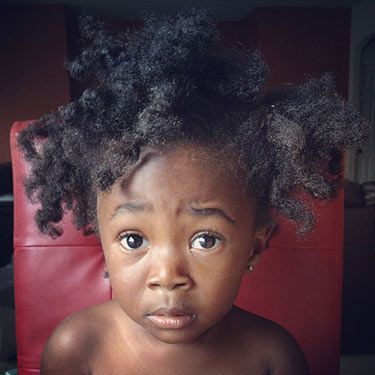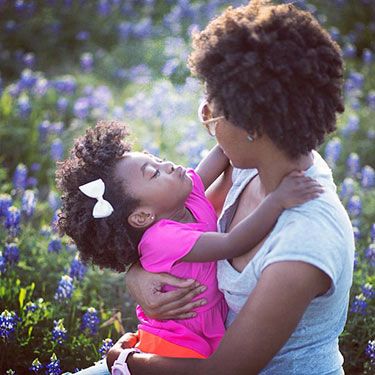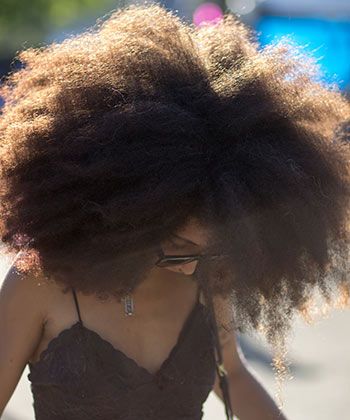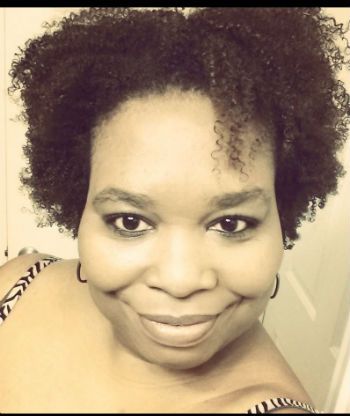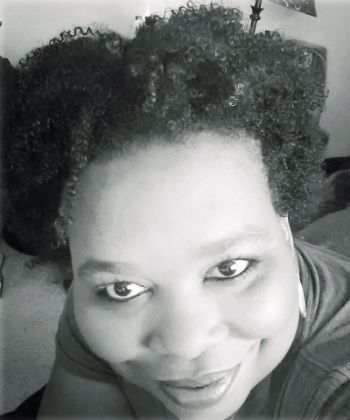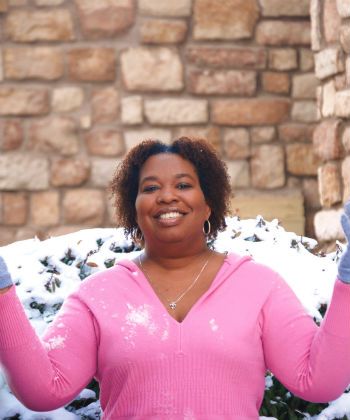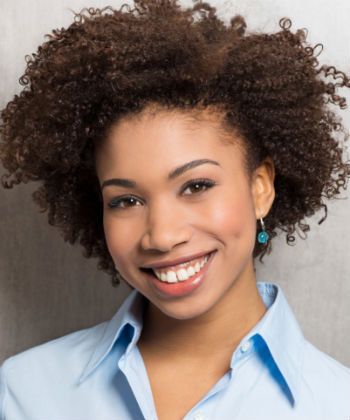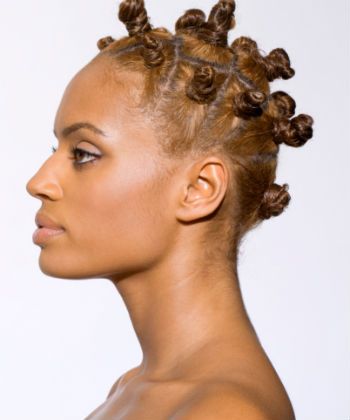Search Results: Sabrina Perkins

PHOTO CREDIT: CHRISTIN SHOOTS PEOPLE
We live in an ugly world where children are bullied, teased, and ridiculed for being different. There are so many obstacles to greatness, but the biggest one is empowering your children to build positive self-worth. Instill them with self-respect and self-love and they will aspire to be great influencers in the world. Sappy, maybe but true nonetheless.One perfect way to teach your children self-love is to show them the beauty and intelligence they possess, and they will accept it for the truth that it is. One love they should possess is the love of their natural hair no matter the texture, color, length, or thickness.
When I first went natural I was terrified of going out into the world with my new hair. It was my own hair but there was no straightening, wig, or weave to cover my curly texture.
It was just me.
I was received with welcome arms from most, but I did notice the silent stares by others. Despite that, I can honestly say I was treated no differently. Then, I switched jobs and it was like going from day to night. My immediate supervisor (who did not hire me, by the way”> made it known that she did not like my curly/coily hair. The few times I would straighten my hair she would shower me with “ooohs” and “ahhhs” and “it’s so pretty this way.”
The last time I wore it straight to the office, she went so far to say, “it’s professional when you wear it straight and you should keep it this way.” I was stunned, infuriated, and high-tailed it to the ladies room to ruin my style with water and my spray bottle. Needless to say, it was the beginning of the end for that job and yes, there were other problems but the main problem was me not being accepted as me.
My story is far from an anomaly. I have heard of curly-haired women being told they would not be taken seriously with curly hair. I’ve also heard of students at colleges being told they would have to straighten their hair to land a job and natural-hair women being told their hair was nappy and inappropriate at work or school. It’s appalling and downright offensive since none of those instances required a particular hairstyle for those women to perform their jobs well.It’s unfortunate that some companies, professionals, or individuals feel that straight hair on a woman is considered professional. They feel that straight-hair employees will be seen as serious, job-worthy, and smarter. So, what does that say about all curly-headed employees? It says just the opposite.
Curly hair is fun, cute, fashionable, and flirty. It’s how you wear your hair for your wedding, prom, and even your gym ID. This long-standing categorization of hairstyles is an outdated one. Just as the baseless saying “blondes have more fun” needs to be retired, the negative curly-hair classification needs to disappear as well.
When it comes to afro-texture hair, women are being deemed unprofessional or even worse…intimidating and threatening. Despite how shallow and unfounded these labels are, it does not change the fact that some women are being treated unfairly due to their hair textures.
What You Can Do About It
I’m tired of the stories I read online and hear in conversations about curly-hair women who have fallen victim to scrutiny. It’s not fair and yes, I’m aware life is not fair but to value a person according to the way their hair curls has to change. Now, there are some women who fall victim to their own self-inflicted insecurities and I have personally witnessed many black women suffer from this affliction. Feeling that even stepping out of their perception of professionalism is not worth the negative backlash. Well, I say step out because if you do your job, handle your business, and are professional, not only will you excel but you will be setting an example that may reshape the perceptions of those around you.
Your hair has nothing to do with it. There are natural and curly-hair anchorwomen, judges, and attorneys. There are curly and natural-hair doctors, teachers, and civil servants. They exist and we just need to support them. Every job has an HR department so it may be time for a sit down if a curly-hair or natural-hair woman feels heat from a supervisor or co-worker about her hair. It may be a hard walk to take, but the problem is with them and not you. Don’t allow someone else’s perception of you to define you or hold you back. And don’t allow others to belittle the issue with the “it’s only hair” comment. That is precisely the point.
“My hair just won’t grow past this length.”
If you’ve ever uttered this phrase, it may be time to take a look at your ends. All hair grows but not all hair retains length. If your goal is to grow long, gorgeous hair, then it is imperative that you give your ends extra TLC.
Why?
The ends of our hair are the oldest and the most fragile. If you have curly or damaged hair, you are even more likely to experience breakage, so here’s what you can do about it.
You’re Too Rough
I cannot say this enough. Rushing is not your friend, especially when washing your hair. You can end up yanking more hair out by ripping your hands or a comb through your hair if you rush your washday.
Take the time to think about what you are doing when handling your hair or you will find tons of strands your hands when you’re done.
Your Hair Is Dry
Keeping your hair moisturized minimizes breakage since it won’t be dry and brittle.
The best moisturizer is water so make sure your moisturizers and conditioners are water-based (water is the first ingredient”>. To ensure your hair is being moisturized properly, pay particular attention to the ends of your hair when applying your products. Yes, our hair grows from the roots but the roots are much stronger than the ends so the ends need more TLC to combat breakage.
Your Ends Aren’t Sealed
Once you’ve applied your moisture, you need to retain it. That means sealing it in with a heavy oil or butter. Always make sure to take particular care with your ends, as they are the oldest and most fragile part of your hair. Sealing your ends will help retain moisture, keep split ends at bay, and stave off breakage. Everyone has their favorite carrier oil to seal their ends and my favorite is coconut oil. Many naturals use olive oil, castor oil, shea butter, or grapeseed oil. The list is vast and the best way to find which oil you prefer will be through trial in error.
You Don’t Protect Your Hair
Protective styling is the most popular way naturals choose to protect their hair but it’s not the only way. Some protective styles do more harm than good. Wigs that have been worn too long and weaves that have been installed too tight have the potential to create traction and bacterial infections, which can lead to breakage or hair loss. Reducing the manipulation of your ends and protecting them from the weather elements are essential. Protecting your hair also includes wearing with a satin bonnet or sleeping on a satin pillowcase to prevent your cotton bed linens from withdrawing moisture from your strands.
You Heat Style
Heat needs to be used cautiously and sparingly. High heat will cause breakage, and although many naturals believe that there is such thing as heat training, it just doesn’t exist. You cannot train your hair to be permanently straight without using chemicals, and if the hair remains straight then heat damage has occurred. Heat damage can occur with only one application and cannot be reversed despite what a product may claim. The hair will not return back to its curly state upon washing and the only way to fix heat damage is to cut it off.
Frequently using heat is equivalent to using high temperatures but it may be harder to tell until thinning or breakage occurs, and then it’s too late. Daily heat applications should cease and if you must use heat, try weekly or monthly if possible and always use a heat protectant.
I’m still disturbed by the incident that occurred on Nov. 13, 2013. Charda Gregory, a black hairdresser in Detroit, had her sew-in weave cut and ripped from her scalp during an arrest by Warren Police Officer Bernadette Najor while the other officers strapped her to a chair and watched. The video of the incident went viral and Najor has since been terminated and arrested while the other officers are currently under investigation for their actions (or lack thereof”> during the confrontation.
It started with Gregory being arrested for being combative in a local motel, but by the time she was in the police station she was calm. Although she was visibly intoxicated or under the influence of something, she did not resist any of the officers while in custody. After being pushed by white female officer, Bernadette Najor—a 10-year police veteran, her fellow officer dragged Gregory to the restraining chair and Najor forcibly cut and ripped the weave out of Gregory’s hair. It was all caught on a non-audio tape and Gregory is clearly in agony from the assault.
My fury concerning this affliction to a fellow black woman is justified. This would not have happened to a white woman. Because we have a black president, people are under the misconception that racism no longer exists, but that only triggered certain behaviors to become subtler. The brutality that Gregory endured was not subtle and the intentions to strip this woman of her pride and respect were seemingly apparent. Our hair is more than a superficial accessory, and whether we buy it or grow it means nothing and is totally irrelevant to the fact that violently stripping a woman resounds with hatred, ugliness, and is repulsively demeaning.
As the natural hair movement has grown in popularity and acceptance, there is a real concern for some who feel intimidated by our hair choices and styles. Not all black women are wearing their natural hair but we are all black and some misguided individuals may neither be able to tell the difference nor care to. What is a better way to strip another woman of her unique beauty than by removing what is symbolic of her femininity, grace, and heritage? What better way to assert your temporary dominance and control than with traumatic acts? For a woman to take such drastic measures to batter and humiliate another woman of a different race shows the lack of acceptance, empathy, and a nuance of a superiority complex.
I know the endless accusations of racism, sexism, and ageism are becoming trite but just because some may neither see nor feel it does not mean it is eradicated. One does not have to see oxygen to know it exists, and as someone who has faced the subtle sting of racism, I can assure you that this was everything but a mistake. The incident may seem odd but this is no anomaly just because news stations decide to cover it. The message is clear; there are many who feel that black women are not on equal footing as a white woman and are not entitled to human dignity. Make no mistake in seeing this as an isolated incident and the officer felt she over-stepped her boundaries. Her boundaries were to protect and serve, not to humiliate and dismember a part of her body.
Sometimes hair is more than a superficial, aesthetic accent and sometimes the message is subtle yet ever so clear. Taking the right to a person’s body (whatever part it may be”> is to take a part of his or her existence. My hair is a symbol of my blackness that I take pride in and hold dear to my heart. I may not know Charda Gregory, but I know she would feel the same.
PHOTO POETIC LIFE PHOTOGRAPHY
The afro has come to be symbolic through history, but what does the afro mean in 2014? Does your afro make you “alternative?”
It honestly depends on whom you ask and what their personal reflection of the word ‘alternative’ symbolizes to them. Whether one is talking about a subculture of the Natural Hair Movement (NHM”> or merely a trend, there is an image that you can form in your mind on what an afro means in 2014.
An afro is defined as two things:
1″> a style where thick, curly hair erects around the head and
2″> a natural hairstyle of black people.
I prefer the New York Times’ definition when discussing Dante De Blasio’s hair during his father’s mayoral campaign in New York, “The Afro as a Natural Expression of Self.” An afro holds more significance than a hairstyle and I must admit, it means even more than the self-expression.
Sometimes words get muddled and misappropriated with usages that have no real connection and before you know it, they take on a new or expanded meanings. Today when you see a woman sporting an afro, oftentimes she is associated with the terms hipster, bohemian, or even Afro Punk. But what does that all mean? Well, it simply means the afro has transformed from its origin of self-love and freedom of expression within American history into a lifestyle and subculture.
The NHM has brought scores of black woman to a new place in their lives where beauty is no longer gauged solely by European standards. As curls, coils and waves are springing up and demanding to be admired, straight hair is no longer exclusively deemed as desirable. But embracing an afro is manifesting simultaneously with another movement where healthy living, fashion, and political thought encompasses our hair and ties to its existence.
 Ties to the Afro
Ties to the Afro
Health consciousness
With the NHM, words like ‘natural’ and ‘organic’ are being overused by beauty brands in an effort to stimulate revenue from the natural hair market.
Despite that thinly veiled attempt to milk a new cash cow, many naturals are indeed vegans or vegetarians. Many do pride themselves on healthy eating and using natural or DIY products while also embracing the minimalist lifestyle.
The NHM in effect ties into the overall whole health trend of veganism, vegetarianism, exercise and even the increasing awareness of environmental impact and reducing our carbon footprint.
Fashion
Because fashion tends to be heavily influenced by cyclical trends, clothing and style are certainly reflective of the times. Within the black community, naturals are associated with vintage clothing, bohemian silhouettes and vibrant prints. I call it a summer festival dress code where comfort meets style and eco friendliness.PHOTO POETIC LIFE PHOTOGRAPHY
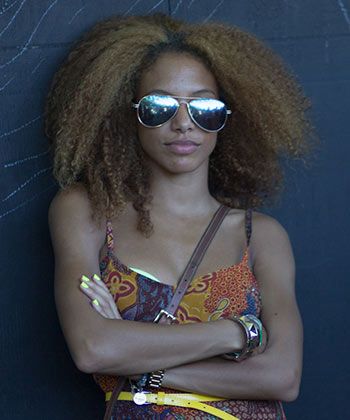 Music
Music
It is challenging to assign a true form of music to the afro when black music is no longer just R&B, Blues or Rap. Black music has surged into new genres and welcomed this change without judgment.
Afro Punk (Indie Rock/ Punk music”> is one genre that many naturals are loving and connecting with (as evidenced by these photos, all taken at Afro Punk Fest”>.
Budgeting
Budgeting is another trend in the catalyst that is the country’s economic slump. The appeal of thrifting, DIY and the makers’ movement is influenced by fashion tastes and eco consciousness in addition to necessity.
The makers’ movement is impacting fashion and design, and naturals have brought DIY to another level with ingredients that most would use for cooking; avocados, honey, olive oil, flax seed… the list could go on forever.
PHOTO POETIC LIFE PHOTOGRAPHY
Political
The word progressive has trumped the word liberal, and although it is hard for many to define and differentiate the two, it appears that most afro wearing black women (and men”> are on the opposite side of conservatives. There is a push for equality for all people regardless of sex, age, race, and sexual orientation.
Now, not all who wear afros or have afro-textured hair fall under these classifications, but these are indicators of what the afro means in 2014. Many sporting the afro would agree that their hair ties closely to their culture and both are openly embraced and appreciated.
So, are afros alternative?
I would say yes it is, and I see it only evolving far beyond a fashion trend. It is tied to our beauty, health, political views, and music. Something so deeply rooted could not possibly be a passing fad but a movement worth watching as it continues to progress and thrive.
PHOTO POETIC LIFE PHOTOGRAPHY
Physical appearance aside, when you neglect your tresses you may find yourself dealing with tangles, brittle hair, and breakage, which in the long-run will be more time-consuming.
Here are a few ways to keep up with the kids and your hair.3 Quick Hairstyles
 Sometimes we have to discuss the not-so friendly problems curly girls may have to deal with from time to time. Not every curly will have to deal with it but if you do, you want to know what to do. I’m talking about head lice.
Sometimes we have to discuss the not-so friendly problems curly girls may have to deal with from time to time. Not every curly will have to deal with it but if you do, you want to know what to do. I’m talking about head lice.
“Head lice, called pediculus capitis by scientists, are small parasitic insects. They live only in human hair, grasping the shaft and feeding once a day by sucking tiny amounts of blood from the scalp. The female louse, about the size of a sesame seed, lays approximately ten eggs, called nits, a day and glues them to the hair shaft. They hatch in 10 to 14 days, grow for nine to 12 days, then mate and the cycle begins again. Lice can live for three to four weeks.” –USA Today
In my experience there is a widespread belief held in the black community that we cannot get lice. While lice do prefer fine, straight hair strands over coarse, curly hair so it is indeed less likely, but lice can still affect every person regardless of race or hair type. One reason is the variety of ways for lice to spread from sharing hair brushes and accessories to touching other people’s hair.
Unfortunately most popular methods for removing lice are conducive to dealing with straight hair with tools like nit ridding combs. Those combs have very tight, small teeth that can wreak havoc on a curly so the following methods are a better option.
Lice removal
Chemicals
If you feel you must use a lice shampoo and remove the nits with that special comb, then do so while the hair is wet. Wet hair is much easier to comb through. Keep a water bottle handy in order to re-wet the hair as it may dry during this lengthy process.
Smothering
Smothering lice with an agent such as olive oil, mayonnaise, or Vaseline is the best method for a curly because it smothers the lice and makes it easier to comb through the curly hair. Olive oil has been lab tested and found to be effective in killing head lice. Allowing the oil to sit in the hair overnight is messy but very effective. Comb through the hair prior to shampooing to get rid of the dead lice and the nits.
Blow-dryer
A blow dryer using direct heat can get rid of nearly 98% of nits and 55% of lice but you should not combine the shampoo method with this one since many have flammable ingredients. This needs to be performed on clean hair and could be paired with the smothering method. High heat is not necessary but it needs to be warm. A bonnet dryer is less effective so use a hand-held blow dryer.
Recommended Method
I suggest saturating your hair with olive oil overnight and combing out the lice and nits before washing your hair. Finish by drying with a blow dryer to best eradicate them.
Sources:
PHOTO COURTESY OF REUTERS
Going natural is a beautiful experience no matter where you are in age, life, or around the globe. There are two options to how you can go natural but neither one is better or easier than the other; it is merely a personal preference for each woman.
Whether you big chop (BC”> or long-term transition, there are survival techniques that need to be mastered for the journey to be positive, smooth, and damage-free.
Most women who BC start with a teeny-weeny afro (TWA”>. Now, if you’ve recently watched TV or movies you already know the queen of the red carpet Lupita Nyong’o. She has brought the TWA back to life when so many have found it limited, unfeminine, or boring. She thinks outside the box to ensure she stays fashionable and sexy.
Pretty soon we’ll begin seeing more women either doing the BC instead of long-term transitioning or doing a second BC just to sport the now popular looks Lupita in rocking effortlessly. In order to achieve this there are some tips that need to be implemented to ensure you’re always looking your best.
Moisture
Moisture is key for natural hair anyways but to ensure your hair has minimal damage or breakage, you should use products that are water-based and will not create a barrier between your hair and what it needs. Botanical (plant based”> products are best and steering clear of non water-soluble silicones, sulfates, and parabens are crucial to keeping your hair properly moisturized, especially if you are a newbie. Check the first five ingredients in any product to see if water is first, as it is essential. Moisturize daily, but if not daily then often.
Get a spray bottle (or two”>
Since my hair was much dryer and required frequent pick me ups during my BC days, it was difficult to manage without a spray bottle. Spray bottles come in all shapes and sizes. You can keep one in the bathroom and even one for your purse. Some variation of filtered or distilled water, a carrier oil, an essential oil, and glycerin should all be in there. It should be mostly made up of water with just a few drops of all the other ingredients to help sustain the moisture.
Protect your ends
No, you don’t have to worry about your hair brushing up against your clothes but if you want those ends to stay around for a while then they need to be protected. That just means sleep with a satin bonnet or on a satin pillowcase. If you are not air-drying, then dry with a microfiber towel or an old t-shirt. They work like a charm! Seal your ends with a great carrier oil like coconut, jojoba, olive, or grapeseed to protect the ends from splitting.
Be gentle
If you are transitioning from relaxed to natural hair then your hair is fragile due to the line of demarcation and scab hair. The line of demarcation is very weak because it is the area on the hair strands that separate the two textures. Scab hair is an unscientific term to describe the virgn hair that is extremely dry after one stops chemically relaxing.
Step outside the box and embrace your inner beauty
Beauty is not obtained through a certain hair length. It’s found in you. Embrace your TWA, nurture it, love it, and accessorize the heck out of it with some earrings, makeup, headbands, scarves, and even your own bare shoulders! As it gets warm, think of adding fun hair clips, a bold color with hair chalk, or even wear a tiara! The choices are bountiful so be fearless, fun, funky, and free with yourself and your TWA.
6 Confessions of a Naturalista
10 Natural Hair Myths





